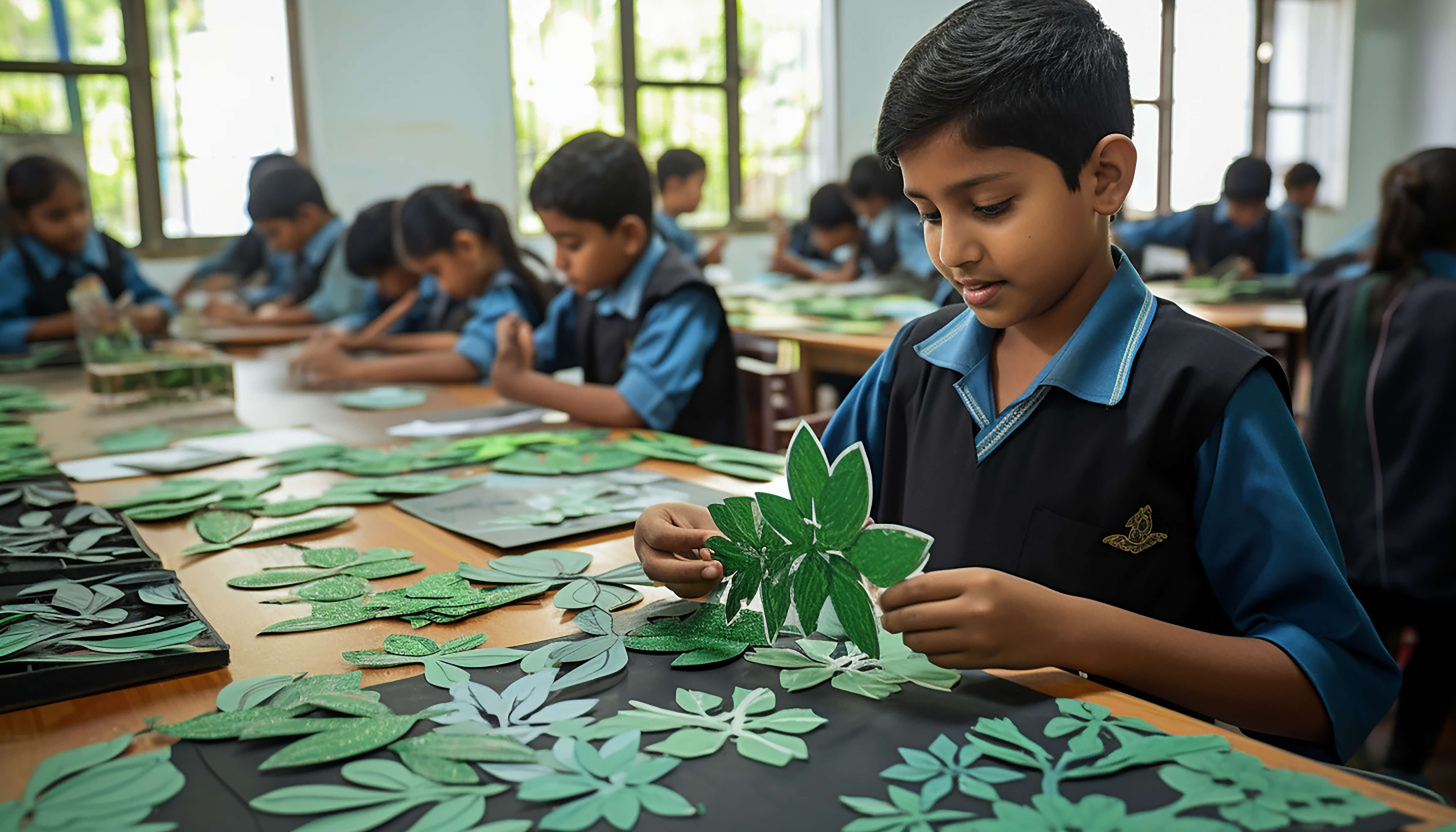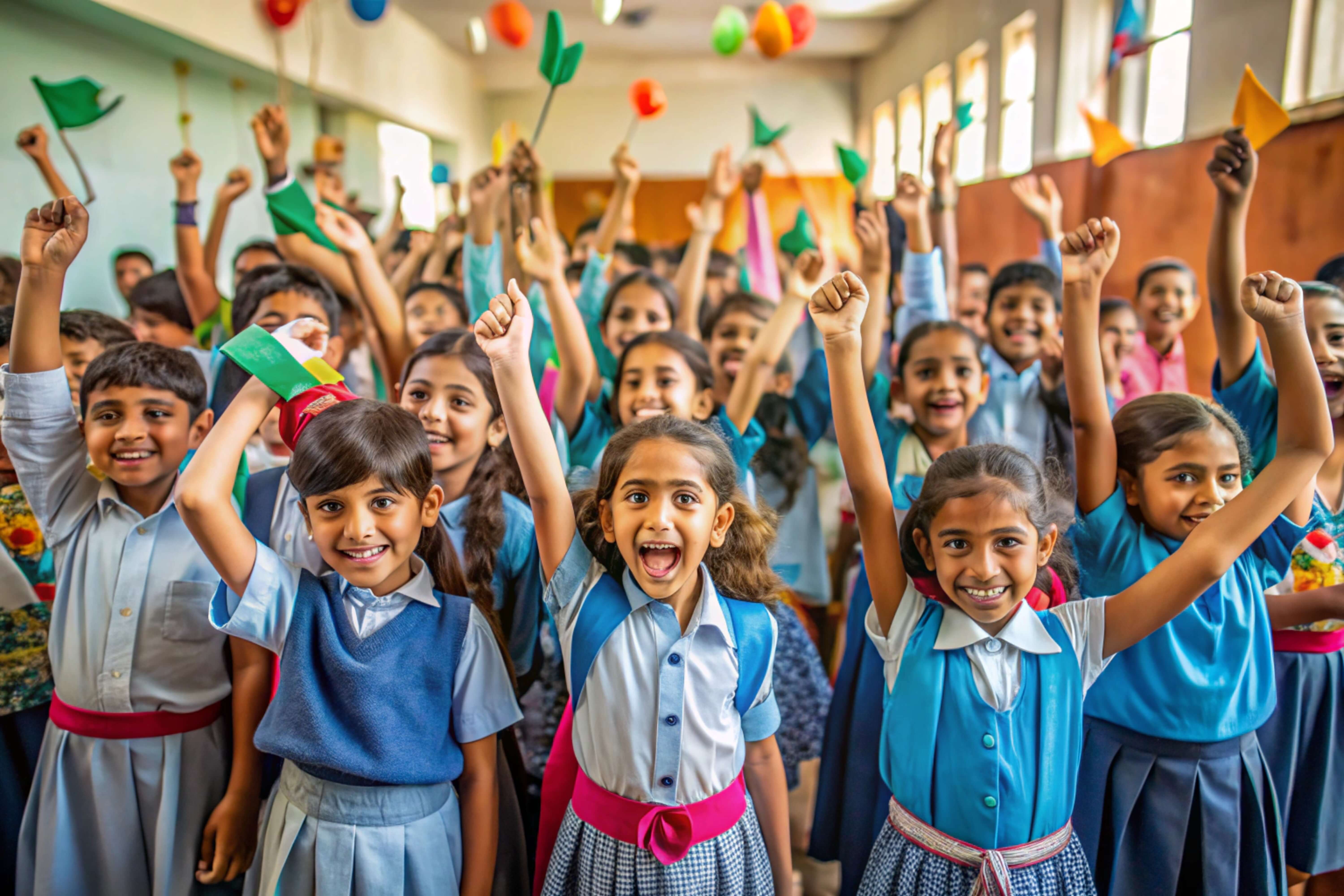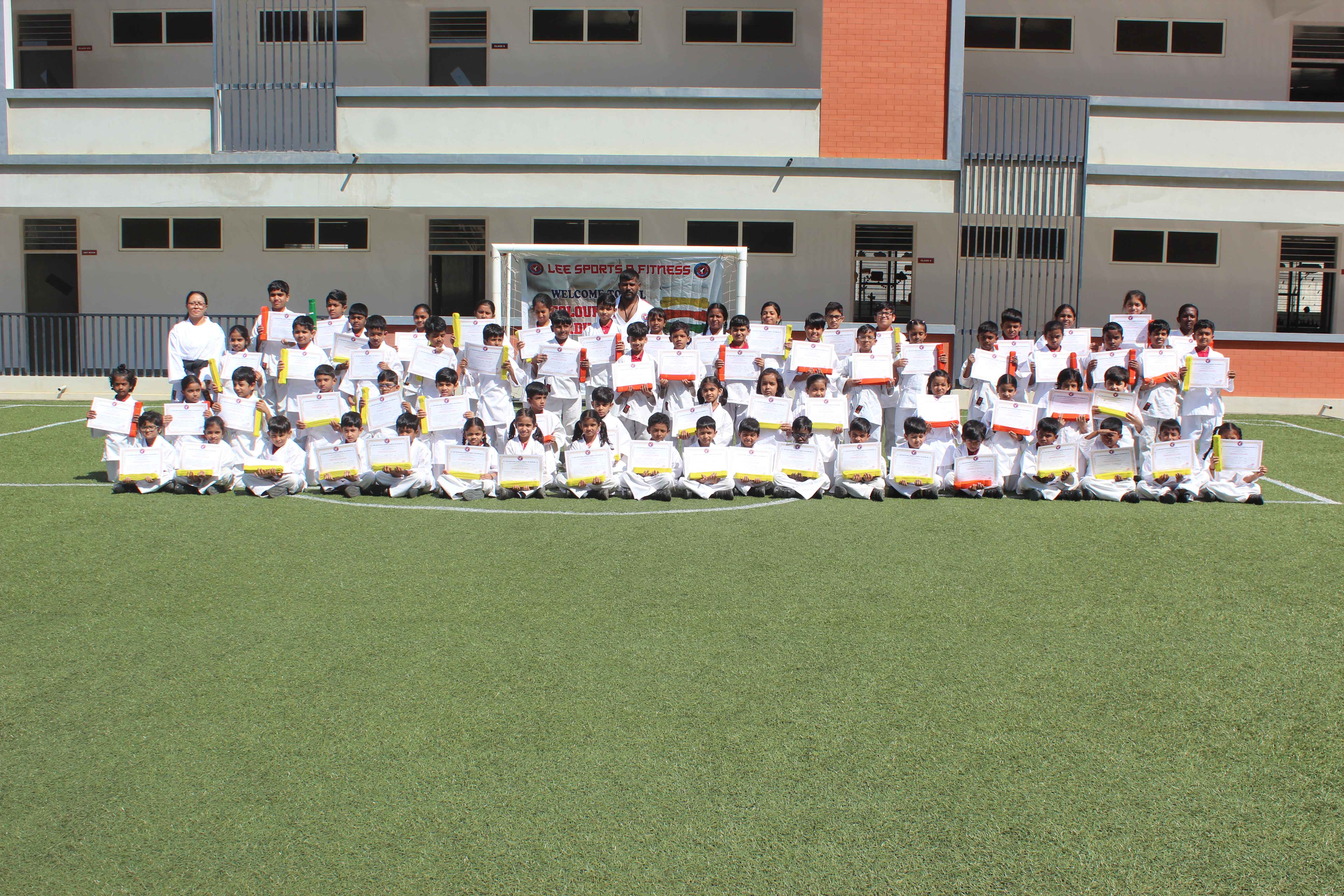Young kids are naturally curious, innocent, and open-minded. They constantly absorb information from their surroundings and shape their personalities, preparing to communicate and participate in society.
Since children are more connected to the rhythm of nature and are rooted in reality, they need to be exposed to positive behaviour and mindset. As they spend significant time at school with teachers and friends and home with family, both environments must reflect positive actions and attitudes.
Because kids learn primarily through observation, paying close attention to the actions of parents, teachers, and friends, rather than instructions like “how to be” and “what to be”, it is essential that all the role models consistently exhibit behaviours and values that are constructive and affirming. By providing an environment where positive interactions are the norm, children are more likely to mimic these behaviours, laying a strong foundation for their future success.
Strategies for Modeling Positive Behaviour
We recognise that for children, parents and teachers are the role models. When children say, “I want to grow up soon,” it’s often because these role models inspire them and aspire to emulate their lifestyles one day.
If you are a parent or a teacher wanting to guide children toward healthy social and emotional development, then here are some effective strategies:
Constantly acknowledge their presence and actions.
You don’t always need to offer compliments or say anything. Simply observing what they proudly show or nodding your head with a warm smile can be enough.
This technique may seem very simple, but it is highly effective.
When you warmly smile at your child, they feel recognised and validated. This reinforces their joy in exploring the world in their own playful way and significantly boosts their self-esteem. We promise that one day, you’ll see confidence shining in their eyes.
Cook, clean, or draw with them.
Doing simple chores like cooking, cleaning, shopping, drawing, painting, or even dancing to the child’s favourite rhyme helps you create an unbreakable bond.
It might take a hundred tries to get them to do something together, but it’s worth it!
You will learn their pace and creative ideas, helping you to fully accept them. This understanding will foster your own calmness and patience. In turn, this teaches them to apply these qualities of calmness and patience in various situations.
Be kind to the little ones.
The actions children see often lead to similar responses from them when faced with parallel situations. In simple terms, Newton’s law applies!
“For every action, there is an equal and opposite reaction.”
Sometimes, being kind can be challenging, especially in extreme situations where you might lose your cool. Instead, channel that intense energy into positive activities like playing outdoors with children or reading a book to them. Redirecting intense emotions not only teaches children healthy emotional management but also reinforces the importance of kindness and patience.
Creating a Positive Environment for Children
While children learn fundamental principles like “Be Safe,” “Be Kind,” and “Be Responsible” in the presence of teachers, applying these rules in environments without clear boundaries or supervision can be challenging. In addition to modelling positive behaviour as parents or teachers, creating an inviting and safe environment can significantly influence how they respond and behave, rather than react impulsively, in any given situation.
At CMR Gandhi Public School, recognised as one of the best CBSE schools near Doddakannelli, we conduct:
- Mindful Play
- Creative Expressions
- Nature Walks
- Guided Reflections
- Collaborative Projects
These practices bring emotional, physical and psychological balance in children and prepare them to engage more positively with the world around them.
Additional Strategies for Parents & Teachers
- Active Listening: Listen attentively and respond thoughtfully.
- Role-play Sessions: Helps to practise social situations and decision-making.
- Community Service Projects: Children develop a sense of responsibility and empathy towards others.
- Encouraging Independence: Allow children to tackle tasks on their own.
- Providing Space: Let children explore independently as it supports their personal growth and discovery.
As children observe adults being thoughtful and attentive, providing space, and participating in community services, they absorb positive attitudes such as kindness, empathy, persistence, respect, confidence, and open-mindedness, and they replicate these qualities in various situations.
To Conclude,
We at CMR Gandhi Public School understand the importance of creating a positive space for our young ones. Our teaching and non-teaching staff are committed to fostering positive social and emotional development at every opportunity, helping children build their confidence and decision-making abilities.










